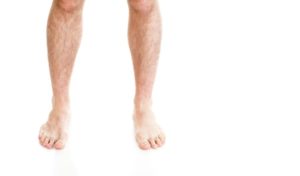The Numerous Benefits of Laser Hair Removal
Benefits of Laser Hair Removal Body hairs have so many health benefits, but you also know that to achieve that sexy look in your bikini or lingerie, you would need…
Benefits of Laser Hair Removal Body hairs have so many health benefits, but you also know that to achieve that sexy look in your bikini or lingerie, you would need…
Brazilian versus bikini laser hair removal Are you looking for a hair removal technique that promotes long-term hairless smooth skin, eliminates the stress of shaving, waxing, plucking body hair, and…
Laser hair removal is an increasingly popular method of removing unwanted hair. With long-lasting results and little maintenance required, laser hair removal can let you ditch the razor for good.…
 Laser hair removal can free you from the time-consuming process of shaving, waxing, and tweezing to get rid of unwanted hair. But, along with its time-saving benefits, laser hair removal can help you say goodbye to ingrown hairs for good.
Laser hair removal can free you from the time-consuming process of shaving, waxing, and tweezing to get rid of unwanted hair. But, along with its time-saving benefits, laser hair removal can help you say goodbye to ingrown hairs for good.
By damaging the hair at the follicle, laser hair removal won’t cause ingrown hairs like conventional hair removal methods. But, can this treatment help you get rid of ingrowns that have already formed? Let’s find out.
After you shave unwanted hair, the newly-cut hair can curl and go back under the surface of the skin. The hair may then continue growing, creating a raised, red, and often irritated bump known as an ingrown hair. Tweezing can also lead to this, as it may leave behind a remnant of the hair beneath the skin’s surface. (more…)
 Laser hair removal is a long-lasting solution for removing unwanted hair. But, while most patients experience a 70% to 98% permanent reduction of unwanted hair, the results of this treatment aren’t the same for everyone. Hormonal imbalances, in particular, can impact the results of laser hair removal by speeding up hair regrowth.
Laser hair removal is a long-lasting solution for removing unwanted hair. But, while most patients experience a 70% to 98% permanent reduction of unwanted hair, the results of this treatment aren’t the same for everyone. Hormonal imbalances, in particular, can impact the results of laser hair removal by speeding up hair regrowth.
Hormone levels are closely connected to hair growth and loss. Androgens, in particular, are the body’s primary hair follicle regulators. These hormones can impact your hair growth after laser hair removal. (more…)
 After shaving, waxing, or plucking, do you wish that the hair would just stay away for good? If so, then you may want to consider laser hair removal treatment. Laser hair removal results last much longer than other hair removal methods. It even provides permanent hair removal for many patients so that they’re well-groomed around the clock, day after day.
After shaving, waxing, or plucking, do you wish that the hair would just stay away for good? If so, then you may want to consider laser hair removal treatment. Laser hair removal results last much longer than other hair removal methods. It even provides permanent hair removal for many patients so that they’re well-groomed around the clock, day after day.
Laser hair removal works using light energy that targets the color in the hair (called melanin) just beneath the skin. This creates controlled injuries in the cells that line the targeted hair follicles. The surrounding skin is left unaffected, but the damaged follicle won’t be able to effectively regrow hair. (more…)
 Reasons to Ditch the Razor for Laser Hair Removal
Reasons to Ditch the Razor for Laser Hair RemovalWhile shaving is a common method of removing unwanted hair, laser hair removal offers several benefits that you just can’t get with a razor. If you’re considering making the switch from the razor to the laser, keep reading to learn about the top perks provided by laser hair removal.
Hair regrows rapidly after shaving because shaving only removes the portion of the hair that’s above the skin — the follicle remains untouched. So, you’ll need to keep shaving every few days to keep unwanted hair away, with no change in the speed of hair growth over time. Laser hair removal, on the other hand, damages the tissue lining the hair follicle. After multiple treatments, the damaged follicle won’t regrow, making laser hair removal a permanent solution for unwanted hair. (more…)
 What Areas of the Body Can I Receive Laser Hair Removal?
What Areas of the Body Can I Receive Laser Hair Removal?Are there specific areas of the body that you wish were hairless? If so, you’re certainly not alone. Many people try various hair removal methods to achieve smooth, hairless skin. Laser hair removal is an ideal hair removal method because it’s effective, versatile, and virtually permanent.
One of the first questions that many people have about laser hair removal is which areas of the body can be treated. Here, we’ll answer this question and provide an overview of laser hair removal.
Laser hair removal can be used to target unwanted hair on any areas of the body, except for the orbital rim of the eyes. With the flexibility to remove hair virtually anywhere, both women and men can achieve their desired look. (more…)
 Is Laser Hair Removal Safe for All Skin Tones?
Is Laser Hair Removal Safe for All Skin Tones?If you are considering laser hair removal, one of the questions that you may ask is whether or not it’s safe for your skin tone. At Laser Affair, our professionals provide laser hair removal for all skin types. However, doing so requires the appropriate laser and an experienced provider.
Let’s explore different skin types and tones and how laser hair removal can be used as an easy, safe, and convenient grooming method.
Laser hair removal technology has come a long way since its inception. Previously, the Fitzpatrick skin types I to IV were considered the ideal laser hair removal candidates. This skin type includes people with light to medium pigmented skin and medium to dark-colored hair. (more…)
When you think about the health of your hair, hormones may not immediately come to mind. However, hormones play a large role in how and where your hair grows. Here, we’ll discuss the variety of hormones that can change your hair growth patterns.
 Different types of hormones have a significant impact on your hair follicles. Androgens like testosterone, in particular, are major determinants for hair growth. But, androgens affect hair growth patterns depending on the location of the body.
Different types of hormones have a significant impact on your hair follicles. Androgens like testosterone, in particular, are major determinants for hair growth. But, androgens affect hair growth patterns depending on the location of the body.
If your testosterone levels are too high, for example, you may experience an increase in facial hair but thinner hair on the head. Testosterone is the male sex hormone, but it’s also found in the female body in lower amounts. Thinning hair can occur as a result of high testosterone in women because androgens cause hair follicles to shrink. (more…)